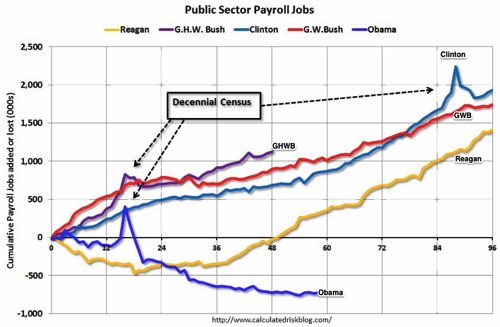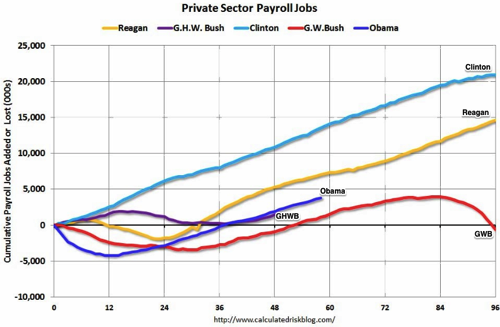Must-Reads:
-
Robert Greenstein: On the Murray-Ryan Budget Agreement: “The budget agreement…represents an improvement… albeit a modest one…. Lawmakers should make every effort to accompany it with an extension of federal emergency unemployment benefits that will otherwise expire the week after Christmas… scale back a number of damaging cuts that they imposed in 2013 in areas ranging from education and Head Start to low-income housing and medical research…. It modestly promotes economic growth by somewhat easing the sequestration cuts in the near term while the economy remains weak and spreading out the offsets over a 10-year period…. It gives appropriators an opportunity to set funding priorities for 2014 and 2015, rather than mechanically extending last year’s funding levels….
“But the agreement also has limitations…fails to extend emergency jobless benefits… replace less than half of the total sequestration cuts in 2014 and a much smaller share in 2015… leaving non-defense discretionary funding at levels too low…. Its $22 billion in savings that would go for deficit reduction will barely make a dent in our longer-term fiscal challenges, and those savings would have been better used to extend the expiring emergency unemployment benefits or scaling back the sequestration cuts to a greater degree.”
-
Paul Krugman: Upstairs, Downstairs, Outside: “Via Mark Thoma, David Cay Johnston has a great piece noting that today’s service economy is in many ways like the Edwardian-era economy in which a small number of wealthy people employed a large number of servants — except that we tend to outsource the service, relying on restaurants and cleaning services instead of cooks and maids. And our outsourced servants are, he notes, arguably paid and treated worse than the in-house servants of the past, even in absolute terms–let alone relative to per capita GDP. It’s a novel and useful way to think about just how unequal our society has grown.”
-
Robert E. Rubin, Roger C. Altman and Melissa Kearney: Making the poor–and the U.S.–poorer still: “Congress… cut[ting] food stamps. The Senate passed a bill in June mandating $4 billion in cuts over 10 years; the House version, passed in September, imposes nearly $40 billion in reductions…. This negotiation is occurring amid the worst poverty levels in two decades, a weak overall economy and rapidly falling budget deficits…economically and morally unsound…. 15 percent of the population–nearly 47 million people–lives in poverty, including 22 percent of children…. For a family of four, the poverty threshold is $24,000 or less…. Roughly 18 million other people are near-poor, living within 130 percent of the poverty line…. Most Americans living in poverty experience hunger or the pervasive fear of it…. Total federal spending on the Supplemental Nutrition Assistance Program (SNAP), this country’s main hunger prevention program, was $82.5 billion in fiscal 2013… [in a] $16 trillion economy…. It is hard to reconcile traditional American values of hard work and generosity with the levels of poverty and fear of hunger in our country…. It has been a generation since our country last had a robust conversation about combatting poverty. Now is the time to reinvigorate that conversation, not cut needed benefits.”
-
Austin Frakt: To avoid failure, the Affordable Care Act must evolve: “The participation of the young and healthy is supposed to be required, of course, by the individual mandate. But the mandate’s penalty is relatively modest and its enforcement mechanisms relatively weak… its power… depends… on civic duty….Matt O’Brien…’real people’, he argued, ‘aren’t rational self-maximizers… We don’t like to feel like we’re doing the wrong thing. We like to follow the rules instead. Feel like we’re a good person’. That the viability of the new marketplaces rests on convincing people that it is their civic duty to purchase health insurance is a weak link. I expect it will break in some markets…. Sure, you can call it a ‘mandate’. But it’s just a choice. Play or pay…. And yet, within the community rating/guaranteed issue framework, the non-participation by younger and healthier people imposes a cost on others…”
Continue reading “Things to Read on the Morning of December 12, 2013”



